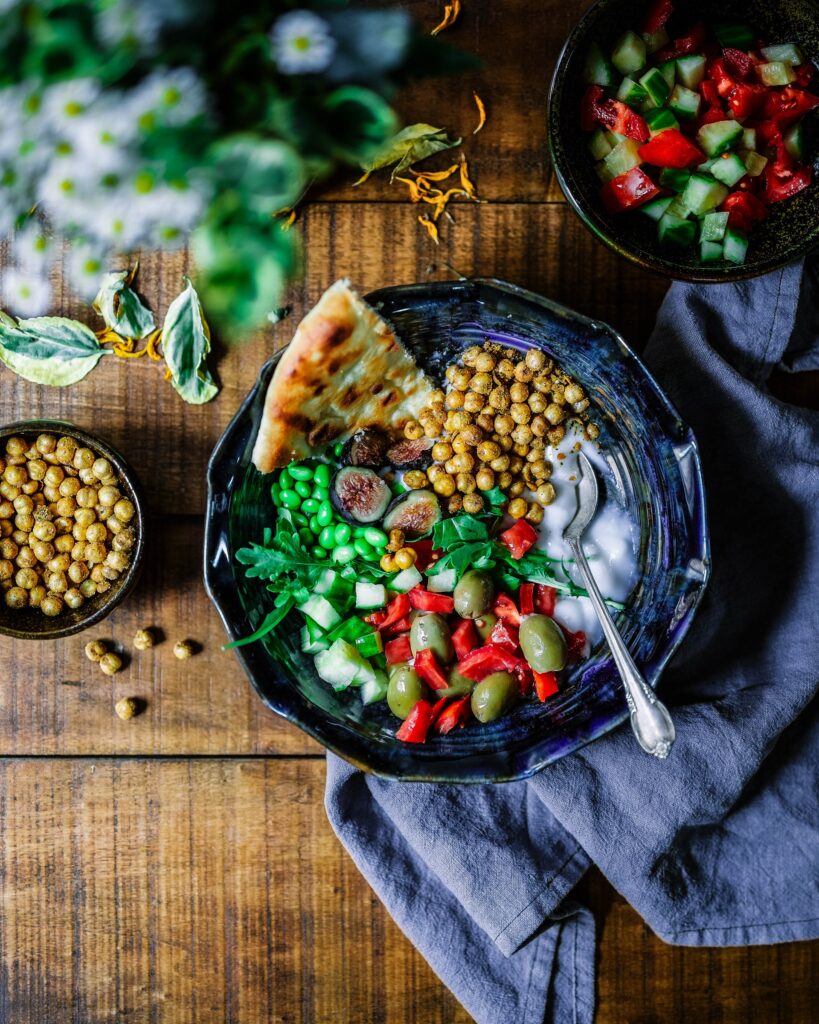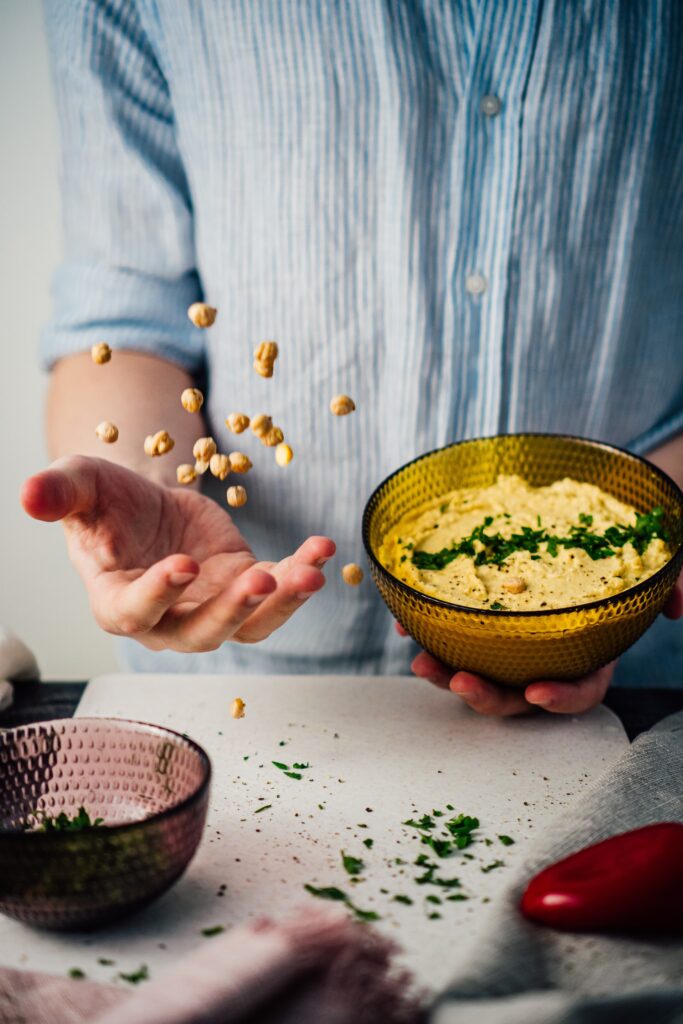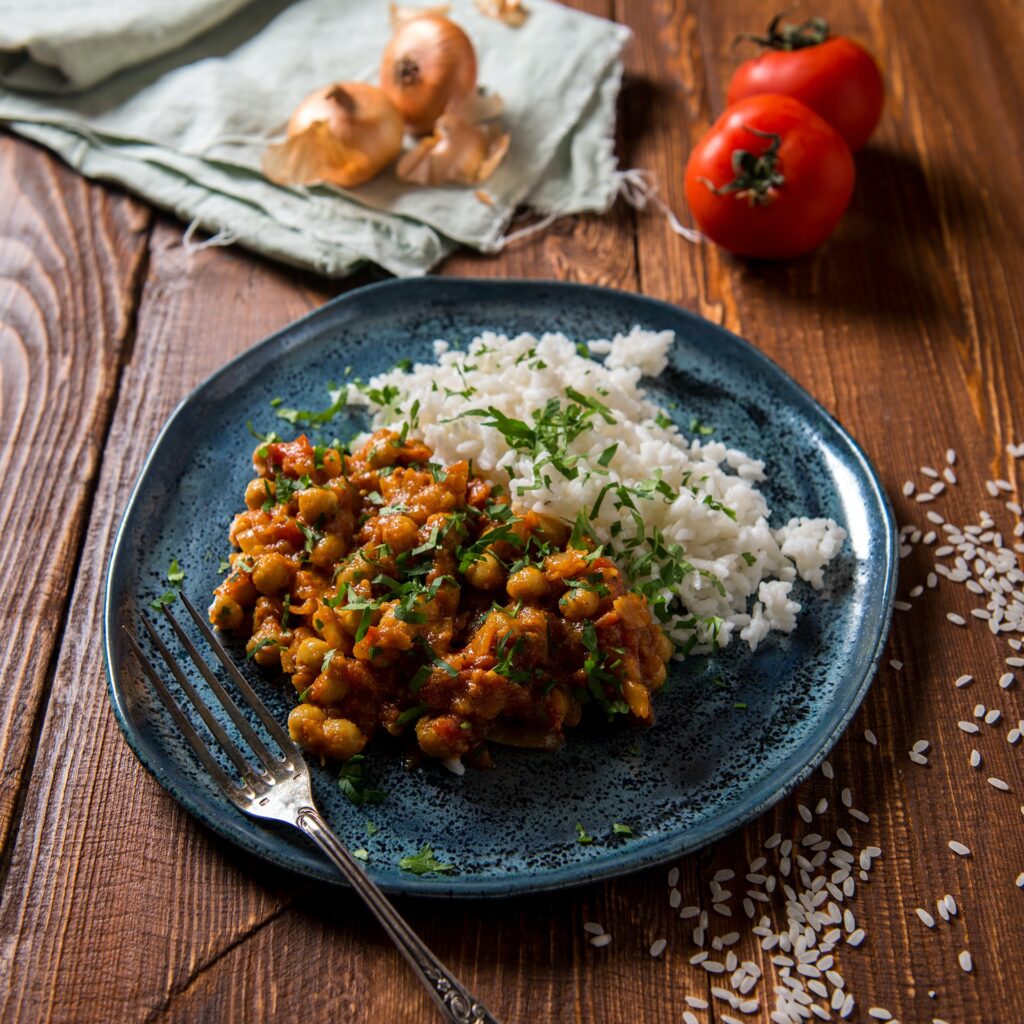Start Eating Chickpeas for 4 Reasons
Did You Know?
Chickpeas, also referred to as garbanzo beans are a type of legume. Legumes are a flowering plant with more than 20,000 different species and are a nutritious staple in plant-based diets. Most common legumes include lentils, soybeans, chickpeas, peas, and dry beans. Some of them are referred to as pulses, but not all of them are. While legumes are the plant, pulses are the pods and beans inside the plant and their nutritious profile includes protein, vitamins, minerals, and fiber. As a result, legumes and pulses are celebrated as an inexpensive and healthy food source to help eliminate hunger in developing countries. They are also celebrated as an important part of a balanced diet to prevent chronic disease. Continue reading to discover 4 reasons to start eating chickpeas
Eat Chickpeas for 4 Reasons
1. High in Protein
Chickpeas are a great source of plant-based protein. According to the USDA, 1 cup of chickpeas has 14.5g of protein. However, chickpeas are not a complete protein source, unlike animal-based sources. Generally, proteins are an important part of the everyday diet because your body uses them to repair tissue, transport nutrients, and build muscle. A complete protein molecule is made up of 20 amino acids and while your body can create 11 of these acids, 9 must be found in food. These 9 amino acids are found complete in animal products like eggs, beef, pork, dairy, fish, poultry, and the exception of soy. Even so, incomplete proteins differ because they contain 8 amino acids instead of 9 and are usually found in plant-based sources like chickpeas. Therefore, plant-based protein sources should be coupled with grain to complete the protein source. Pairing a legume or pulse with rice or quinoa creates a complete meal of carbohydrates, protein, vitamins, minerals, and fiber.

2. Improve Gut Health
The role of improving gut health is related to a specific type of fiber in chickpeas called raffinose. As raffinose passes through the gut and is metabolized, the good bacteria in the colon produce a byproduct called butyrate. Researchers propose that Butyrate plays a role in reducing inflammation in the colon and regulating gut health. Overall, fiber helps decrease the risk of constipation and bowel regularity also plays a role in improving gut health.
Read more about the importance of fiber here
3. Reduce risk of Chronic Disease
Plant-based diets are not only recommended due to their positive environmental impact but also due to their ability to support a healthy lifestyle and decrease the risk of chronic disease. For example, chickpeas have low sodium and polyunsaturated fats, which support heart health. Additionally, they have a low glycemic index, meaning they don’t spike blood sugar, which is beneficial for diabetics and those with insulin sensitivity. One study followed a group of 45 people with an elevated risk of heart disease and results found a significant improvement in their blood sugar over 20 weeks of consistent chickpea consumption. Another study found that a consistent diet of pulses reduces high cholesterol.

4. Source of Antioxidants
Chickpeas are a source of antioxidants due to many bioactive properties like polyphenols, which are organic compounds packed with antioxidants. Antioxidants are important because they help combat oxidative stress in the body from multiple sources like inflammation. Therefore, by reducing inflammatory markers and other stress byproducts, the risk of chronic disease decreases. A legume like chickpeas has been proved to have natural antioxidants, which support overall health.
What Should You Do About It?
First, talk to your doctor. Especially if you have a medical history or take certain medications. Legumes and pulses should not be overconsumed especially with a GI history. If not prepped adequately, they can induce flatulence and abdominal discomfort. Therefore, it is recommended to include them into your diet slowly.

How To Make It SMART
SHORT- Consider incorporating chickpeas into your diet. Add them to salads, make soup, stews, roast them as a snack, make hummus, or bake using chickpea flour
MEASURABLE- Incorporate them as a healthy part of your lifestyle. Since they do not alleviate any specific ailment, use them for overall health
ATTAINABLE- Is this something you want to implement consistently? You should aim to include nutritious foods in your diet frequently
REASONABLE- Is it possible to implement? Chickpeas can be implemented into your diet in multiple ways, like hummus on toast or soup. Discover which is your favorite
TIMELY- Commit to including chickpeas in your diet to support overall health
As always,
Love yourself in health, one day at a time

